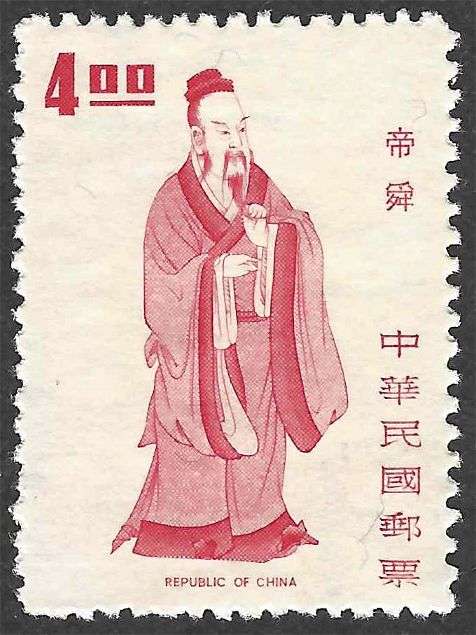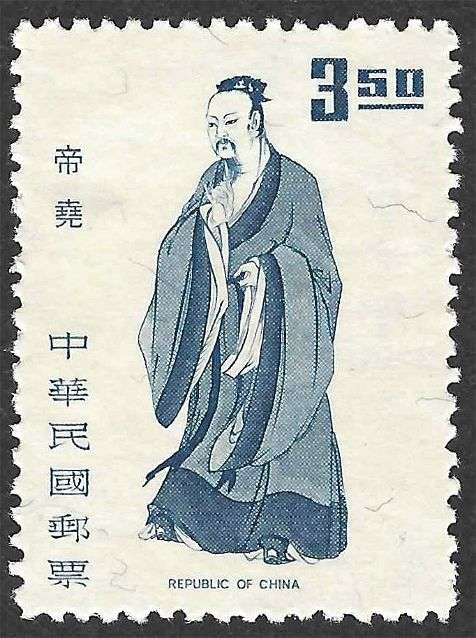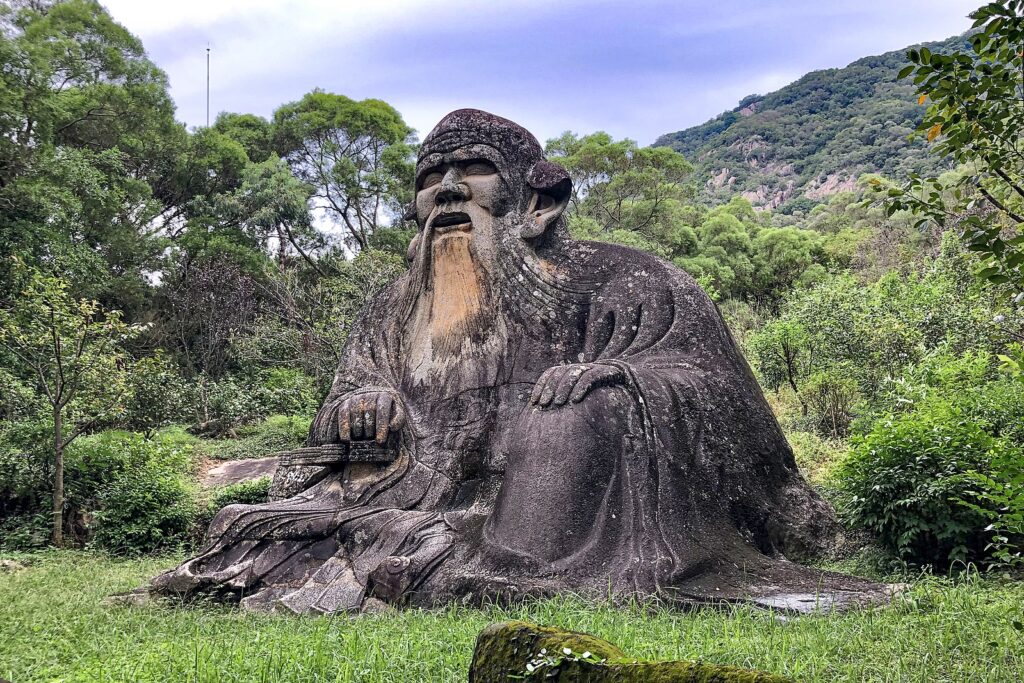Of old, Shun asked Yao, saying, “How does your Majesty employ your faculties?”
“I am not arrogant towards the defenceless,” replied Yao. “I do not neg lect the poor. I grieve for those who die. I pity the orphan. I sympathise with the widow. Beyond this, nothing.”
“Good indeed!” cried Shun, “but yet not great.”
“How so?” inquired Yao.
“Be passive,” said Shun, “like the virtue of God. The sun and moon shine; the four seasons revolve; day and night alternate; clouds come and rain falls.”
“Alas!” cried Yao, “what a muddle I have been making. You are in accord with God; I am in accord with man.”
Courtesy: Taoist Tales by Raymond Van Over


In Chinese mythology, Yao and Shun are legendary emperors and exemplars of proper rulership. They are considered to be two of the Five Emperors, who ruled China from 2355–2185 BC. They are a key part of classical Chinese culture and are often used as literary motifs.
Images: Postage stamps on Emperors Yao (3.50) and Shun (4.00) issued by ROC in 1972.
Taoism is a diverse philosophical and religious tradition indigenous to China, emphasising harmony with the Tao (way, road, path or technique). Taoist thought has informed the development of various practices within the Taoist tradition and beyond, including forms of meditation, astrology and feng shui. A common goal of Taoist practice is self-cultivation, a deeper appreciation of the Tao, and more harmonious existence. Taoist ethics emphasise such virtues as effortless action, naturalness, simplicity, and the three treasures of compassion, frugality and humility.

Lao Tzu, or Laozi, was a semi-legendary ancient Chinese philosopher and a revered figure in Chinese culture. He is generally considered the founder of Taoism and author of the Tao Te Ching, the foundational text of Taoism. Lao Tzu is a Chinese honorific, typically translated as “the Old Master.“
Image: Stone statue of Lao Tzu at Qingyuanshan in China.
